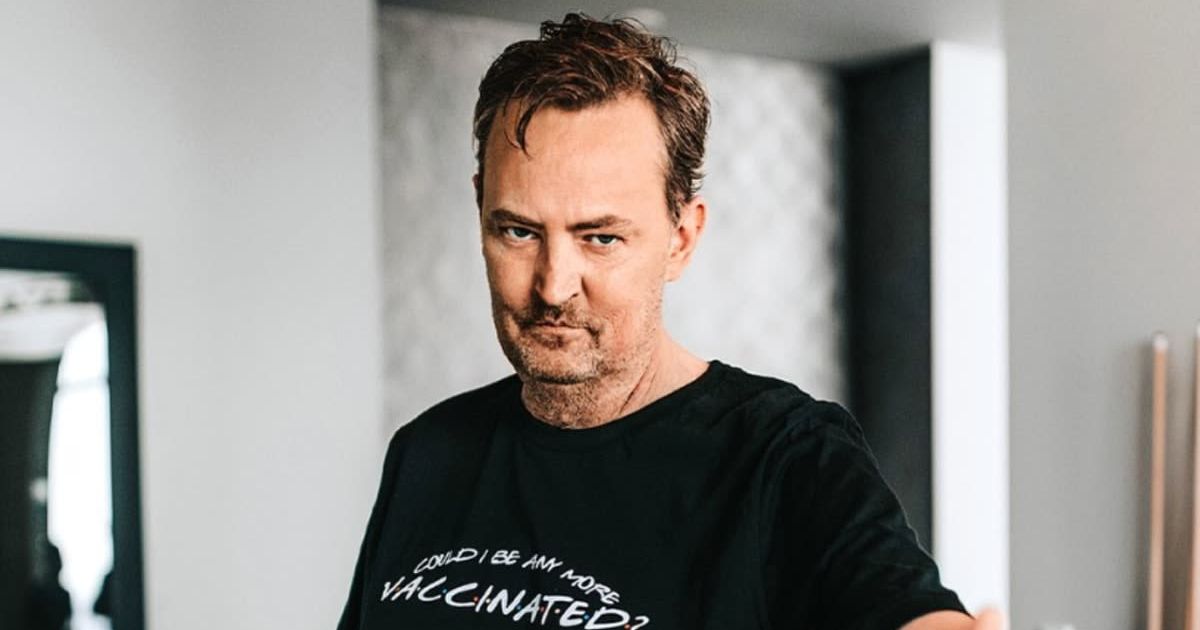Matthew Perry's rehab pal claims 'Friends' star had a 'lot of enablers' during his battle with addiction

LOS ANGELES, CALIFORNIA: Matthew Perry's battle with addiction was surrounded by a circle of "enablers," according to a source familiar with the 'Friends' star's decades-long struggle.
The insider revealed that Perry had difficulties dealing with the challenging environment of Alcoholics Anonymous (AA) groups in New York, where individuals in the program called him out. The source, a former rehab pal, mentioned that Perry couldn't handle the "tough love" characteristic of their AA group.
Matthew Perry's former rehab pal speaks out

“Mr Perry wasn’t able to deal with the tough love which is characteristic of my AA group,” the source told The New York Post. “I feel for him, but in my 25 years experience, sometimes ‘helping’ someone is really enabling.
The person added, “I think he had a lot of enablers who meant well. He was in a golden cage.”
The friend, who emphasized the importance of being cautious about enabling behaviors, suggested that Perry had a support system that, although well-intentioned, might have contributed to a problematic dynamic.
The insider refrained from providing more details out of respect for the privacy of the rehab group but described Perry as a fairly “ordinary addict.”
Ketamine abuse and tragic outcome
Perry's struggle with addiction took a tragic turn when he was found facedown and unconscious in the pool at his Pacific Palisades home on October 28. The autopsy report revealed that his death resulted from the "acute effects of ketamine" and accidental drowning.
Pathologist Dr Michael Baden explained that Perry “essentially died from an overdose of ketamine and had about three times the normal amount in his system.”

In his memoir, Perry had openly written about the challenges of his 30-year battle to stay sober, attending numerous AA meetings, undergoing rehab 15 times, and spending a significant portion of his fortune on treatment.
Medical examiners noted that the actor had not had a ketamine infusion for over a week before drowning, meaning it could not have been the cause of his death.
Dr David Mahjoubi, an anesthesiologist and founder of the Ketamine Healing Clinic of Los Angeles, expressed concerns about the "out of control" ketamine abuse in the city.
He pointed out that laws regarding the drug were eased during the COVID-19 pandemic, leading to online drug makers taking prescriptions from doctors who provide them without proper mental health assessments.
“It’s kind of the Wild West right now in terms of ketamine abuse and unfortunately, the medical boards of various states are not coming down hard enough on this,” Mahjoubi said.
Moreover, Mahjoubi criticized "concierge medicine" services in Los Angeles, where patients receive in-home treatments without thorough physical and psychological assessments.
“There are some companies that send a medical staff to just satisfy the law, but this person probably has never seen the patient in person or even via telehealth beforehand, and that is dangerous,” he noted.
“I’ve caught some patients who have used multiple services and I’ve discharged them from receiving further treatment from my practice once I find out,” Mahjoubi told The Post.
“Meanwhile, you also have companies springing up online that could easily mail someone ketamine tablets. It’s gotten out of control,” he concluded his explanation.










